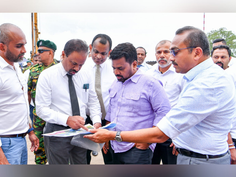U.S. Immigration Raid at Hyundai Plant Shakes Business and Diplomacy
- Rahaman Hadisur

- Sep 14, 2025
- 2 min read
Hadisur Rahman, JadeTimes Staff
H. Rahman is a Jadetimes news reporter covering Business

In early September, U.S. federal authorities carried out a massive immigration raid at a Hyundai-LG electric vehicle and battery plant construction site in Georgia. The operation resulted in the detention of roughly 475 individuals, including more than 300 South Korean nationals. The scale of the raid made it the largest single-site enforcement action in Department of Homeland Security history. Most of those arrested were subcontractor employees, many working under B-1 or ESTA visas not authorized for labor, rather than directly employed by Hyundai.
Constructed as part of a $7.6 billion investment, the plant was envisioned as a major economic accelerator for rural Georgia. As a joint venture, the Hyundai-LG facility was expected to hire thousands and become a centerpiece in the state’s push for green energy leadership.
South Korea swiftly intervened. Government officials negotiated a deal to repatriate over 300 of its detained citizens, with a chartered flight arranged for their return once administrative steps were completed. South Korea’s Foreign Minister also headed to Washington for ongoing discussions.
The raid has sparked growing concern over the treatment of foreign technical workers under stricter U.S. immigration rules raising doubts about the future of similar investments and projects dependent on such employees. Many questioned whether current visa categories, such as the limited H-1B, adequately support the technical staffing needs of high-skill infrastructure projects.
The fallout has also strained U.S.–South Korea business relations. South Korea, alarmed by the enforcement and its implications, called for visa reforms such as a specialized skilled-worker category to prevent such disruptions in future cases. Hyundai and LG pledged to review and improve their employment practices to reduce legal risk.
For Georgia, the incident poses a significant political and economic challenge. Governor Brian Kemp’s ambition to transform the state into an electric mobility hub now faces new headwinds. While the project had garnered billions in investment and construction incentives, it now also risks becoming a cautionary tale amid tense immigration enforcement.
In Washington, administration officials signaled further workplace enforcement actions might follow. Meanwhile, experts and business leaders warn that without more transparent and functional visa pathways, the U.S. could deter foreign companies from investing in projects requiring skilled international labor.











































Comments